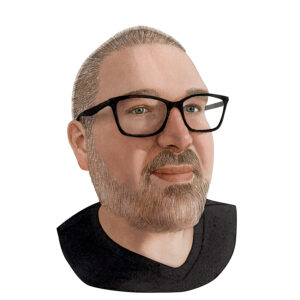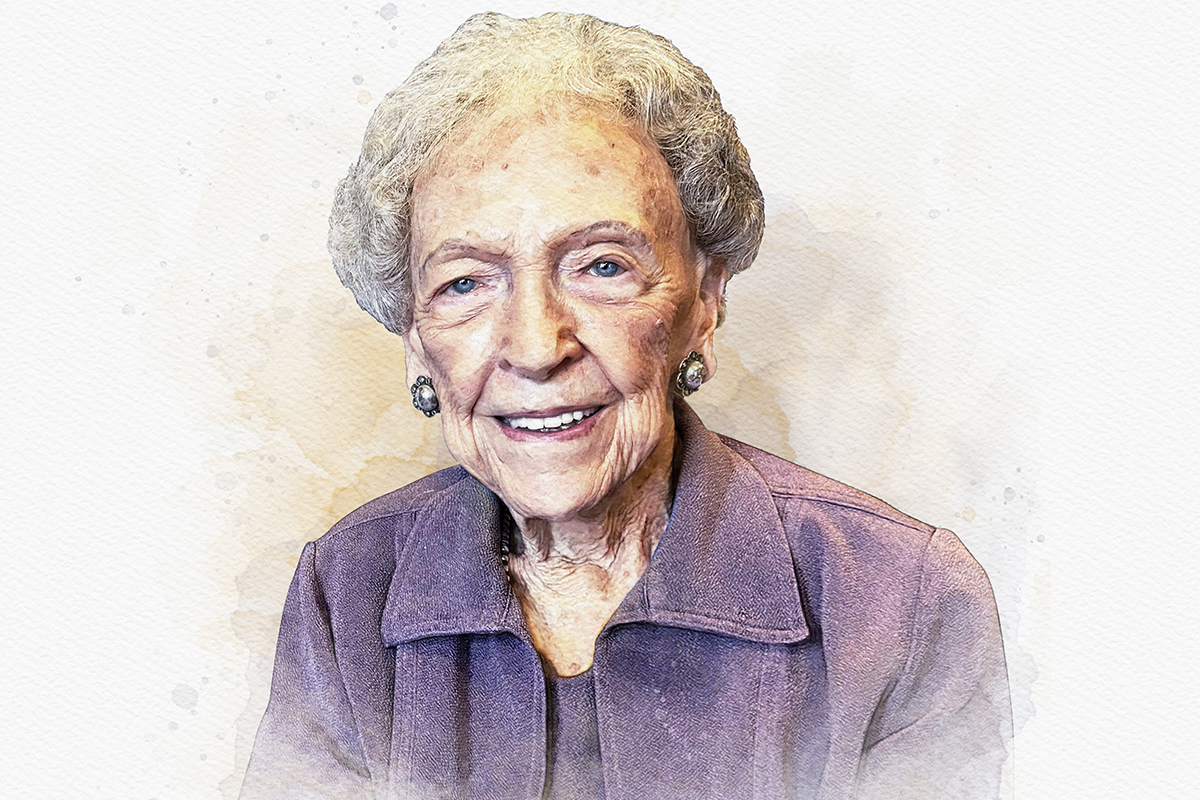Until January, the American economy was robust. Very few Americans outside academia and doomsday prepper circles talked about pandemics.
Then, suddenly, everything changed—just as author and investor Nassim Nicholas Taleb warned they would.
To be sure, Taleb didn’t predict an outbreak of a novel coronavirus originating in a Chinese wet animal market. But the author and former options trader wrote the widely influential best-seller Black Swan, which examines outlier events such as unexpected pandemics.
It’s a philosophy that informs the work of KC Mathews, the chief investment officer for Kansas City-based UMB Bank.
Black swans such as the coronavirus are brutal moments of existential crisis for many asset managers, who spend years meticulously building portfolios and developing trust with clients.
We chatted with Mathews about his strategy for navigating this topsy-turvy market. His answers have been edited for length and clarity.
What’s the philosophical approach of an asset manager in this situation?
It’s a humbling business, especially when you have these black swans where you don’t have any history to rely on to give you clues as to what might happen. I’m not an economist. I call myself a market economist because I’m trying to figure out what the economy will do and what it will mean to our markets. And our goal, of course, is controlling risk and making money for our clients over a cycle.
When you talk about black swans and data, do you look back at events like the 1918 pandemic, or is that old data incompatible with our modern markets? Do you look at 9/11?
When you look at the 1918 flu, it’s so far back there that times are very different. So we try to look at modern history, if you will, and study the empirical evidence to find out if there are clues that can help us. We have had events—shocks, black swans—that have shut down economies. September 11 was a perfect example. The economy was shut down for a short period of time, and airlines weren’t flying for a week or two. You had a case in Japan 2011 with the tsunami—it just shut down the economy. But the difference is those have been short-lived, and it’s in those periods that I cite the government leaders that have been out there saying, “Go back to your normal life; go back and consume.” And you had the opportunity to consume—the dry cleaners were open, the movie theaters were open. Today it’s a little different in that you have this shock, but instead of saying, “go out and consume,” they’re saying “shelter in place.”
So what was “the shock,” in your mind? Was there a moment you would define as the shock?
There are actually two shocks that I would cite. One, of course, was the number of COVID-19 cases spiking here in the United States, which started around February 20. Health care professionals didn’t quite understand the contagious nature of the virus. There were all kinds of issues. The United States didn’t close down the economy until about March 16, and I would say it was a soft close. Whereas you try to study China—their cases spiked January 15, but they shut down the economy on January 23, eight days later.
So I would say around late February or the first of March is when we kind of said, “We need to de-risk portfolios because this thing isn’t gonna resolve itself anytime soon.” But there were still, at that time, so many unknowns.
Now, there was another shock and that was, of course, the breakdown in negotiations between OPEC’s Alliance Plus—OPEC negotiating with Saudi Arabia and Russia—and that could not have come at a worse time. We already had a destruction of demand for fossil fuels as the economy was shutting down. Because those negotiations broke down, all of a sudden it was a pump-at-will strategy. So the Saudis and the Russians just pumped like crazy and flooded the market, and oil prices had a waterfall event.
I don’t think I’m alone in sort of being stuck in the mindset that lower oil prices are great for the American economy. We consume the most oil! However, we are also now the largest producer. Is this the first time we’ve gone through a financial crisis where we’re an oil exporter?
Well, we have some history. You can find recent data from 2014 to 2016 when oil prices came down sixty to seventy percent, exactly like they’ve done now. The difference was we were still jetting around the country burning a lot of jet fuel and driving to work. And there were a lot of people driving to work—the labor market was strong. The economy was chugging along. The difference now is we’re working from home. We’re following the CDC guidelines. I’ve gotten in the car twice in the last three weeks. I went to the grocery store, and I had to get a garbage disposal because ours went on the fritz. Under normal conditions, we would drive by a gas station and think, “This is great!” Well, right now, because we’re all sheltering in place, we’re not spending that money on gasoline. And we’re not spending it on other discretionary items, such as entertainment, because we can’t.
I just have to follow up: You replaced your own garbage disposal?
Doggone right I did!
I guess this is the point we’re at in this pandemic. One of the top finance guys in town is replacing his own garbage disposal. I’m not sure how the opportunity cost could possibly work out there in a normal world.
In all fairness, my father was a civil engineer. So he taught me many things in my childhood. This gave me an opportunity to teach my son how to change one.
So what do you say to people you talk to casually about the local economy?
The key is to get our arms around this virus. Since I’m not a doctor or a scientist, I don’t know how you do that. I guess you listen to the CDC. Let’s nip this situation in the bud. One of the things that we’re watching is, as China reopens their economy, are we going to see a resurgence of the virus as they’re on trains and buses together, in group gatherings at work? It would be terrible if all of a sudden you saw spiking cases again. So I guess my casual advice would be to get our arms around this virus. Let’s stay at home and work from home. There are a lot of companies that are studying the virus. Right now, there are over two hundred and seventy different drugs in the works—that’s the whole pharmaceutical biotech industry. They’re working real hard to try and find a way to stop this thing. But the key is to stop the spread of it, first and foremost.
When you mentioned de-risking portfolios, what is sort of a nutshell summary of what you do? Do you just try to get out of airlines, hotels and the most volatile things?
We reduce risk across the board. Because even if you look at good stocks—I’ll just pick one; I’m not here to give you stock tips—but Johnson & Johnson. I think Johnson & Johnson is a great stock, but it’s down. There was no place to hide when the tide went out. All the boats went down… or just about all the boats.
This is a very emotional time. In the markets, there are always two very strong forces at play: fear and greed. And you saw that with the panic selling. It was just craziness. That was the fear. And then all of a sudden you got a couple of good days, and the greed comes in. “Maybe we need to get back to the market and we need to buy stocks.”
Historically, you can look at 2008 and what we went through. If you go look at 2008 and 2009, the market was going down, but you had all these false signals, all these head fakes. In October of 2008, the market went up eighteen percent! Then it went down further. Then from November to December it went up twenty one percent! And then it went down further. And then in March of 2009 it bottomed.
So our take is when you have the uncertainty—there are so many unknowns out there—I think at that time you tried to swim close to shore. Because you can always go to Vegas and put it on red or black. That’s not what we’re doing here.
How do you see the next year playing out for the American economy?
We have to brace ourselves for a few weeks of really bad information. We’ll start with first-quarter earnings season, and first-quarter earnings might not be that bad. But these corporations are going to have to say, “I have no idea what’s going to happen in the second quarter because we’re shut down.” You get second quarter earnings in July—it could be pretty bad when they say, “My business was shut down.” So the economic data is going to be soft. We’re going to go into recession.
Then the big unknown is: How fast will a consumer come back? Even if you get all clear, when will you be comfortable taking your family on an airplane ride? Or staying in a hotel? Or going to the movies and sitting right next to someone? Those are unknown.
People are talking about a V-shaped recovery—it’s going to go down swiftly and then we’ll be through this thing as soon as you know it. I just think it’s going to take a little bit longer to instill confidence in the consumer to go out and consume the way they used to.
I think the third quarter is probably going to be contracting. Then, hopefully, once we get some type of vaccine, we will get our arms ripped around this thing and people will be consuming again.
I’m hoping with all the stimulus in the market place—with all this pent-up demand—whether it’s the fourth quarter, or maybe into 2021, you get some really nice robust economic activity.
So you really feel like a vaccine is critical to turning things around?
It’s critical. If it’s similar to a flu shot, where I know that next fall I can get the COVID-19 shot like a flu shot—I get a flu shot every year and I haven’t had the flu in ten or twenty years—then yeah, I’d go on an airplane. Yeah, I’d go stay at a hotel. I think that’s a significant breakthrough. If we could have a vaccine that’s credible. It’s all about how you instill confidence.





